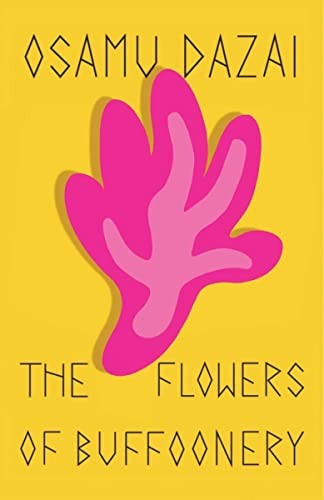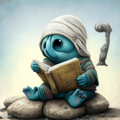ceoln (e)k Donald Keene(r)en Flowers of Buffoonery liburuaren kritika egin du
Probably an excellent book
3 izar
Edukiari buruzko abisua Mild spoilers for the basic background premise
This is probably an excellent book; but it mostly just left me puzzled.
I think this is because:
I haven't read the larger work that it's ancillary to; I should really read No Longer Human.
I couldn't tell how many of the odd things that happened were intended as metaphor, or character development, or surrealism, and how many were just because that's how things are in Japan, or how they were at that time, and I just don't know that culture.
People are described as blushing at times when that doesn't make sense to me; is that indicative of something from the author, character development, or is it just that blushing has different associations in Japan? A nurse at the sanitarium sleeps in the same room as the patient; is she amazingly devoted, or is that what a Japanese sanitarium is expected to be like? Most globally, the main character has tried to commit suicide with a lover; she died but he was rescued. He does not seem especially perturbed by this, mostly just palling around with his friends while recovering in the sanitarium. Is this bizarre character development, an illustration of the emotional deadness of this set of people, or would the Japanese expectation be that virtually all negative emotions would be routinely suppressed in that situation?
The author's frequent, almost constant, fourth-wall breaks to lament what a bad writer he is and how badly the novel is going seemed just offputting to me. Would they have made more sense in the original environment? I don't know, but given that he's universally thought to be a good writer, it seems likely that I'm just missing it.
Smaller things included some translation issues, where for instance the colloquial English used to render (I assume) a roughly equivalently colloquial Japanese felt rather jarring for whatever reason among the still strongly Japanese kimonos and in-room hibachis and so on. Translation is hard; probably I am just not that good at reading in translation.
So why did I write this down, even? Mostly for myself, I suppose, in case I want to recall what the book was like later on.
If you aren't me, should you read it? Probably! I imagine it's quite good...

